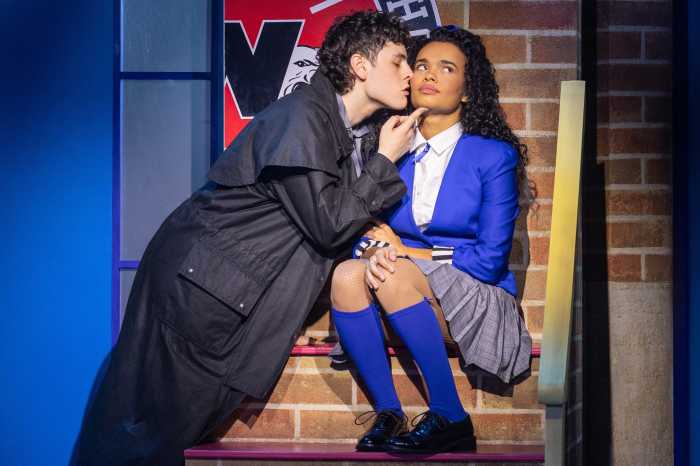
Imogen Heap may be the paragon of the idea that modern musicians have to be able to do a little of everything in order to ascend in the industry. She’s had the featured song on a multiplatinum selling soundtrack (Frou Frou, her duo act with Guy Sigsworth, exploded into the mainstream consciousness when “Let Go” gained attention on the soundtrack to “Garden State.") She’s released solo work that hasn’t just been successful, but has also been sampled more than 90 times according to WhoSampled.com, perhaps most famously on Jason Derulo’s “Whatcha Say.” The 41-year-old Londoner has also scored one of Broadway’s most recent smashes, “Harry Potter and the Cursed Child.”
But performing is only one aspect of Heap’s current tour. In each city she visits, she also holds workshops related to Creative Passport, her experiment into the world of blockchain and smart contracts. With the goal of keeping all of an artist’s “data” in one place, the Passport could be a game-changer for musicians, allowing them to take more control over their careers and devote more time to doing what they love — and what their fans love them for.
amNewYork caught up with Heap in advance of her NYC tour stop to talk about Frou Frou, "Harry Potter" and the future of how artists do business.
Working on a play — especially a massive one like “Harry Potter and the Cursed Child” — has to necessitate a big change from how you usually work.
After I got into the swing of it — because it was quite terrifying in the beginning — I found it lovely, getting to go with your instincts. They move between scenes so quickly, they don’t want to wait for the composer to be like, “sorry, can I just see that again?” They’re just flying through stuff, and you get to see a scene two or three times. It’s five hours of play, and it’s about two-and-a-half to three hours of score. There’s a hundred cues — all different. And sometimes one of the creative team would come up and say something like, “maybe this song of yours would be a good match.” So I’d start with something like “Headlock” or begin with a song like “First Train Home,” and I’d have all the stems — I do that at the end of every record, get all the separated tracks — and do whatever I need it to do to see it through the scene. And you’d maybe start off with the whole of “Headlock,” but by the end you’d have something different — but it would have the spirit of “Headlock."
This tour sees you reuniting with Frou Frou partner Guy Sigsworth for the first time in more than 15 years. How has it been on the European dates?
It’s really fun! And I’m excited, because we really never got to play anywhere as a band. I think we did a few shows in Los Angeles and one in New York, so we never really got to play to our audience in the states, or really in the world. We played these tiny clubs when our record came out, and nobody had ever heard of us, and then we disbanded a couple of years later, and then “Garden State” came out [in 2004] and everyone was like, “Oh my god what’s this band? I love the band!” And we’re like [tiny voice] “We’re not together anymore.” So it’s nice, it’s really fun and I love Guy — he’s such a character.
Where did the idea for the Creative Passport start?
Just about a month after [my daughter] Scout was born, I was so frustrated and terrified about how hard it was going to be to release a song and do everything I had to do to get the word out there. I didn’t have a label by choice; there’s a lot of forms you have to fill out, a lot of notifying people when a song’s going to be released … and then to market the song — it’s such a hugely annoying process to release music if you want to do it and try to get paid. I just wished that I could have one place where I could put all of the data around that song, that would help me help that song do business. If you wanted to sample it or remix it, if you wanted to cover it or put it in a TV show, I wanted everyone to know that it was OK to do that, and here are the terms. Every single bit of data connected to a song is a route to discovery, to learning more about that song. Not everyone is going to be interested in what kind of microphone I used or something else, but there are a few people out there. I just wished we could have a place to put all of that stuff and help everyone get paid.
Imogen Heap performs at 8 p.m. on May 7 and 8 at Town Hall, 123 West 43rd St., thetownhall.org.


































